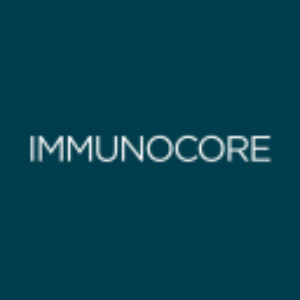Immunocore presents data at the European Society for Medical Oncology (ESMO) Congress 2021 demonstrating a reduction in circulating tumor DNA (ctDNA) while on tebentafusp is associated with overall survival in the Phase 2 clinical trial
Rhea-AI Summary
Immunocore presented significant findings at the European Society for Medical Oncology (ESMO) Congress 2021, highlighting that a reduction in circulating tumor DNA (ctDNA) while on tebentafusp correlates with improved overall survival in patients with metastatic uveal melanoma. In a Phase 2 trial, 70% of evaluable patients experienced some ctDNA reduction, with 14% achieving complete ctDNA clearance. The company submitted applications for tebentafusp approval to the FDA, EMA, and MHRA, building upon its Phase 3 study's positive outcomes.
Positive
- 70% of evaluable patients showed ctDNA reduction while on tebentafusp.
- 14% of patients achieved complete ctDNA clearance.
- The trial indicates a strong correlation between ctDNA reduction and overall survival.
- Regulatory applications for tebentafusp are under review by FDA, EMA, and MHRA.
Negative
- None.
News Market Reaction
On the day this news was published, IMCR gained 2.51%, reflecting a moderate positive market reaction.
Data tracked by StockTitan Argus on the day of publication.
PRESS RELEASE
Immunocore presents data at the European Society for Medical Oncology (ESMO) Congress 2021 demonstrating a reduction in circulating tumor DNA (ctDNA) while on tebentafusp is associated with overall survival in the Phase 2 clinical trial
Linear correlation between the magnitude of ctDNA reduction on tebentafusp and improved overall survival
(OXFORDSHIRE, England & CONSHOHOCKEN, Penn. & ROCKVILLE, Md., US (20 September 2021) Immunocore Holdings Plc (Nasdaq: IMCR), a late-stage biotechnology company pioneering the development of a novel class of T cell receptor (TCR) bispecific immunotherapies designed to treat a broad range of diseases, including cancer, infectious and autoimmune disease, presented new data from the Company’s lead program, tebentafusp (IMCgp100), at an oral presentation at the European Society for Medical Oncology (ESMO) Congress.
The findings presented by Alexander N. Shoushtari MD, medical oncologist at Memorial Sloan Kettering Cancer Center, demonstrated that reduction by Week 9 in circulating tumor DNA (ctDNA) while on tebentafusp is strongly associated with overall survival (OS). A majority (
“Uveal melanoma is characterized by a defined set of unique mutations that can be measured in the blood as free circulating tumor DNA,” said David Berman, Immunocore’s Head of Research and Development, “We found that the degree of ctDNA reduction from tebentafusp was strikingly correlated with overall survival. This association was observed even in patients whose tumor lesions appeared radiographically stable or progressing and suggests that clinical benefit from tebentafusp may occur even in patients who did not have a RECIST response.”
The U.S. Food and Drug Administration (FDA), the European Medicines Agency (EMA) and the United Kingdom’s Medicines and Healthcare Products Regulatory Agency (MHRA) have each accepted applications seeking the approval of tebentafusp for the treatment of HLA-A*02:01-positive adult patients with metastatic uveal melanoma based on the primary endpoint of overall survival (OS) from the Phase 3 study IMCgp100-202.
About Immunocore
Immunocore is a late-stage biotechnology company pioneering the development of a novel class of TCR bispecific immunotherapies called ImmTAX – Immune mobilizing monoclonal TCRs Against X disease – designed to treat a broad range of diseases, including cancer, infectious and autoimmune. Leveraging its proprietary, flexible, off-the-shelf ImmTAX platform, Immunocore is developing a deep pipeline in multiple therapeutic areas, including five clinical stage programs in oncology and infectious disease, advanced pre-clinical programs in autoimmune disease and multiple earlier pre-clinical programs. Immunocore’s most advanced oncology therapeutic candidate, tebentafusp, has demonstrated an overall survival benefit in a randomized Phase 3 clinical trial in metastatic uveal melanoma, a cancer that has historically proven to be insensitive to other immunotherapies.
About Tebentafusp
Tebentafusp is a novel bispecific protein comprised of a soluble T cell receptor fused to an anti-CD3 immune-effector function. Tebentafusp specifically targets gp100, a lineage antigen expressed in melanocytes and melanoma, and is the first molecule developed using Immunocore’s ImmTAC technology platform designed to redirect and activate T cells to recognise and kill tumour cells. Tebentafusp has been granted Priority Review; Real Time Oncology Review; Breakthrough Therapy designation; Fast Track designation; and orphan drug designation by the FDA in the United States; orphan drug status in the European Union; and Promising Innovative Medicine (PIM) designation under the UK Early Access to Medicines Scheme for metastatic uveal melanoma. Tebentafusp has also been granted accelerated assessment by the EMA’s Committee for Medicinal Products for Human Use (CHMP). Tebentafusp is being reviewed under the FDA’s Project Orbis initiative, which enables concurrent review by the health authorities in partner countries that have requested participation. For more information about enrolling in tebentafusp clinical trials for metastatic uveal melanoma, please visit ClinicalTrials.gov (NCT03070392).
About ImmTAC® Molecules
Immunocore’s proprietary T cell receptor (TCR) technology generates a novel class of bispecific biologics called ImmTAC (Immune mobilising monoclonal TCRs Against Cancer) molecules that are designed to redirect the immune system to recognise and kill cancerous cells. ImmTAC molecules are soluble TCRs engineered to recognise intracellular cancer antigens with ultra-high affinity and selectively kill these cancer cells via an anti-CD3 immune-activating effector function. Based on the demonstrated mechanism of T cell infiltration into human tumours, the ImmTAC mechanism of action holds the potential to treat hematologic and solid tumours, regardless of mutational burden or immune infiltration, including immune “cold” low mutation rate tumours.
About Uveal Melanoma
Uveal melanoma is a rare and aggressive form of melanoma, which affects the eye. Metastatic uveal melanoma typically has a poor prognosis and has no currently accepted optimal management or treatment. Although it is the most common primary intraocular malignancy in adults, the diagnosis is rare, with approximately 8,000 new patients diagnosed globally each year (1,600-2,000 cases per year in the United States). Up to
Forward Looking Statements
This press release contains “forward-looking statements” within the meaning of the Private Securities Litigation Reform Act of 1995, including, but not limited to, statements regarding the efficacy, safety and therapeutic potential of tebentafusp; the clinical development of tebentafusp; the potential benefit of Breakthrough Therapy Designation, Fast Track Designation, Orphan Drug Designation, Priority Review or Accelerated Assessment for tebentafusp; the likelihood of obtaining regulatory approval of tebentafusp; the regulatory approval path and potential commercialization plans for tebentafusp including the timing of such approval decisions, including receipt of a CHMP opinion; and the expected benefits of tebentafusp including that tebentafusp would be a therapeutic option treatment for metastatic uveal melanoma. Any forward-looking statements are based on management’s current expectations of future events and are subject to a number of risks and uncertainties that could cause actual results to differ materially and adversely from those set forth in or implied by such forward-looking statements, many of which are beyond the Company’s control. These risks and uncertainties include, but are not limited to, the impacts of the COVID-19 pandemic on the Company’s business, clinical trials and financial position; unexpected safety or efficacy data observed during preclinical studies or clinical trials; clinical trial site activation or enrolment rates that are lower than expected; changes in expected or existing competition; changes in the regulatory environment; and the uncertainties and timing of the regulatory approval process. For a discussion of other risks and uncertainties, and other important factors, any of which could cause our actual results to differ from those contained in the forward-looking statements, see the section titled “Risk Factors” in the Company’s Annual Report on Form 20-F filed with the Securities and Exchange Commission on March 25, 2021, as well as discussions of potential risks, uncertainties, and other important factors in the Company’s subsequent filings with the Securities and Exchange Commission. All information in this press release is as of the date of the release, and the Company undertakes no duty to update this information except as required by law.
CONTACT:
Immunocore
Debra Nielsen, Head of Communications
T: +1 (610) 368-8602
E: debra.nielsen@immunocore.com
Follow on Twitter: @Immunocore
Consilium Strategic Communications (corporate and financial)
Mary-Jane Elliott/ Chris Welsh/ Jessica Hodgson
T: +44 (0)203 709 5700
E: Immunocore@consilium-comms.com
Investor Relations
Clayton Robertson, Head of Investor Relations
T: +1 215-384-4781
E: ir@immunocore.com







